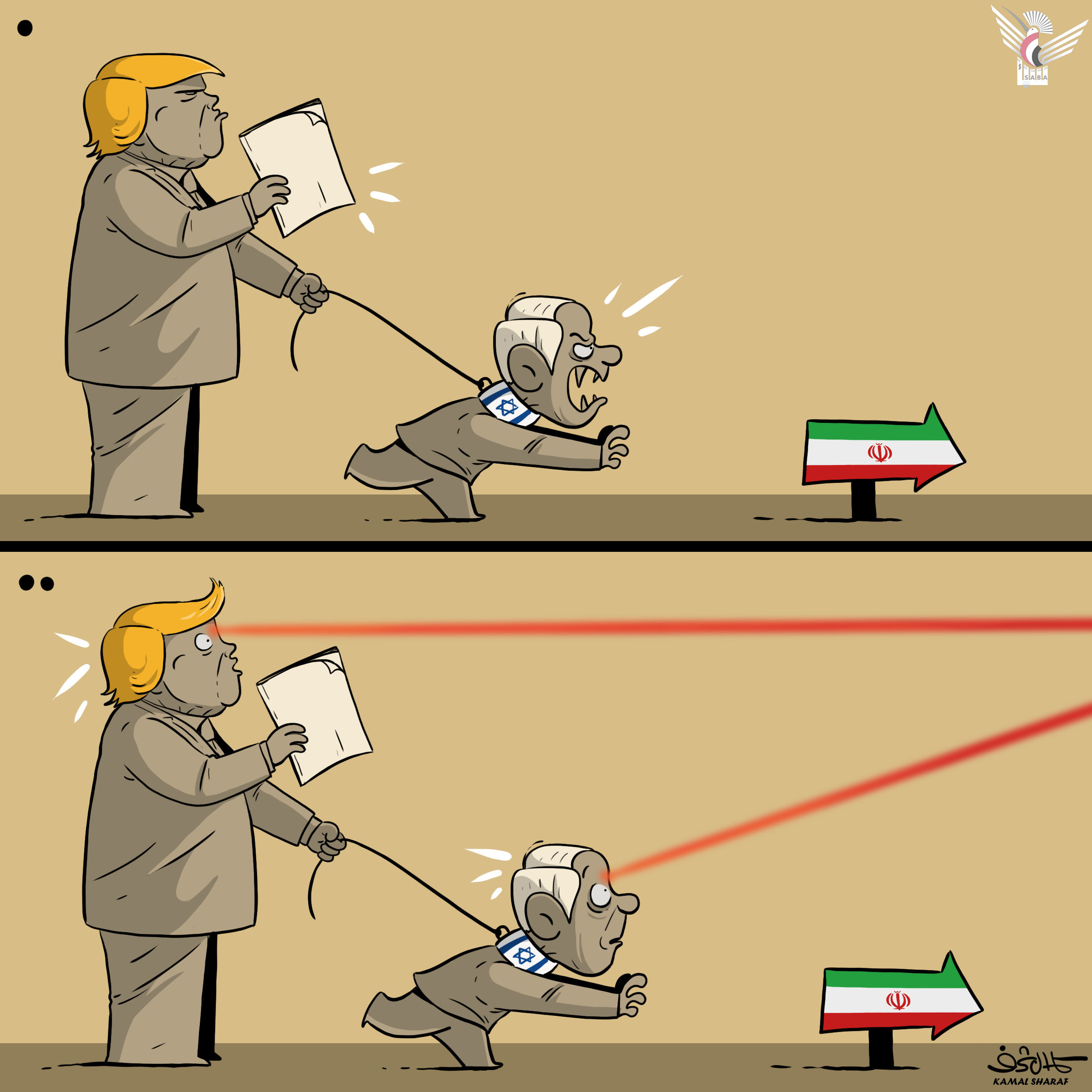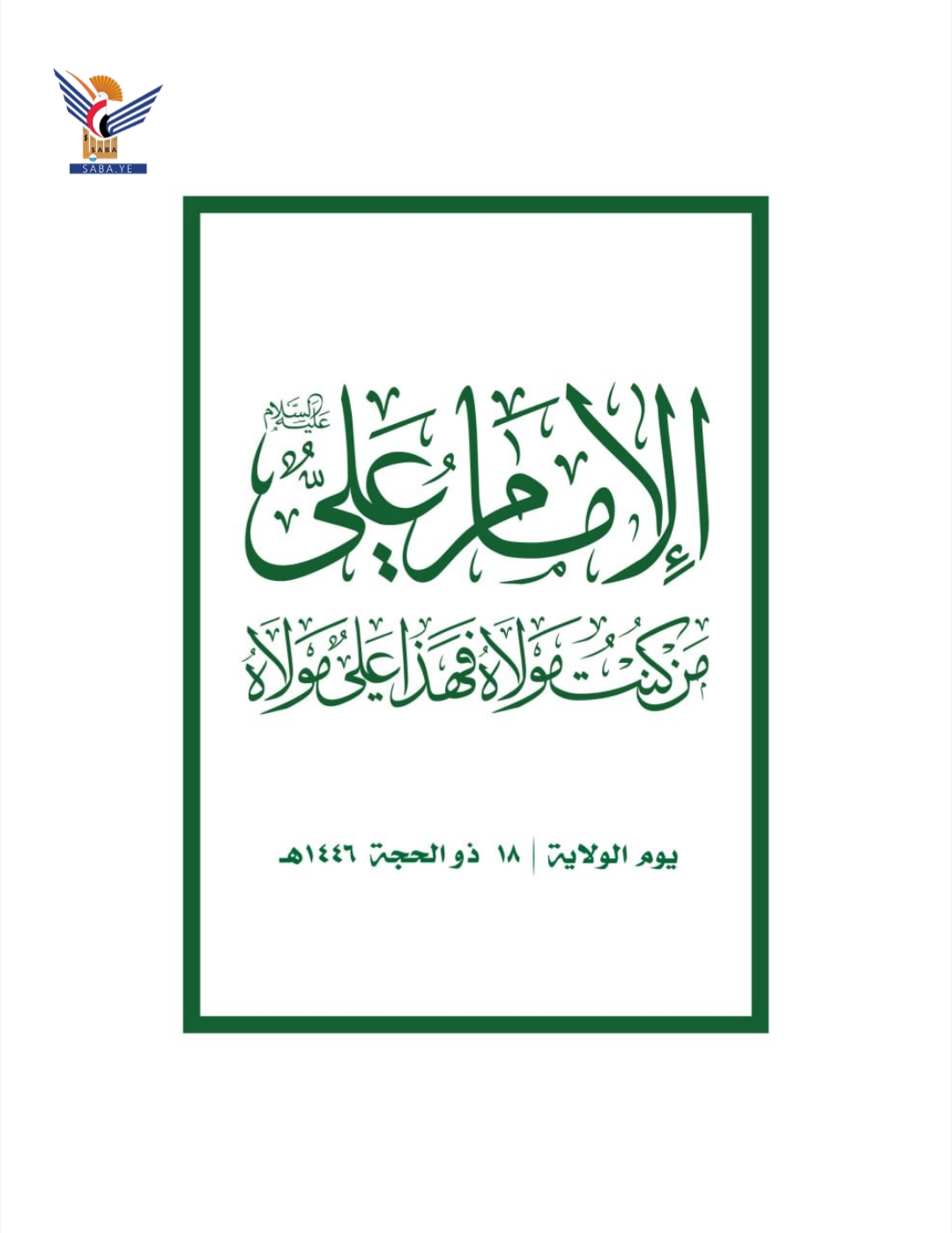Sana'a - Saba:
In Yemen, the deep connection to the Ghadir Declaration is being renewed, this is the moment when the Prophet Muhammad (peace and blessings be upon him and his family) declared before tens of thousands: "Whoever I am his master, then this Ali is his master," this affirmed the completion of the message, established the path of leadership, and launched a project of guidance within the nation based on awareness and duty.
This moment marked a pivotal turning point in Islamic history، it was not a personal declaration, but rather the foundation of an approach that spans time, in which the message is integrated with leadership, faith with position, and prophethood with guardianship.
The martyr leader Sayyed Hussein Badr al-Din al-Houthi restored the spirit of this declaration and saw it as the foundation of every subsequent deviation in the nation's history, he emphasized that transgressing the text of Ghadir was the root of the political and spiritual collapse and the beginning of the departure from the path of guidance.
From this understanding emerged the Quranic March project, placing guardianship at the core of its literature, as a compass for the situation, a system of leadership, and a key to identifying challenges and formulating responses, based on emulating Imam Ali's knowledge, justice, insight, and courage.
The leader of the revolution, Sayyed Abdul-Malik Badr al-Din al-Houthi, continued on the same path, embodying guardianship as a responsibility and a chosen one, he emphasized that when the nation takes on Ali, it takes on the values of dignity and builds an independent political project, not managed by embassies or funded by black boxes.
In Yemen, guardianship has transformed from a concept to a practice, from a slogan to a decision, When the leadership decided to embody guardianship as a position, a new equation was formed: decisions stem from the field, sovereignty is built on the foundation of faith, and confrontation stems from Quranic awareness, not political bargaining.
Over ten years of aggression, Sana'a formulated a deterrence equation from the podium of the state, and the Sana'a government stood with the weight of the state, not through reactions, but through an administration that held the ground, reorganizing decisions from beneath the rubble, basing its strength on the spirit of Ghadir.
From a cultural project launched from a limited space, to a popular revolution, to raging fronts, to sovereign positions in international politics, the journey took an upward trajectory that was not the ambition of power, but rather the fulfillment of responsibility.
In this context, modern Yemeni thought redefined enemies and allies, depicting America as the source of hegemony and Israel as a permanent enemy, all standards of subservience and normalization were dropped from the discourse.
Yemeni masses commemorate Ghadir annually, not simply to commemorate an occasion, but to rebuild collective memory based on a project of guidance, where slogans become positions, and events become renewed awareness.
The events of the past two decades in Yemen have reflected this transformation, when the leadership adopted the approach of guardianship, the map expanded from pulpits to frontlines, from sermons to drones, from Ghadir to deterrence equations in the face of aggression.
This path was built on a Quranic understanding that does not separate faith from power, nor isolate leadership from the battlefield, Yemen emerged as an effective force, managing its decisions from the pulpit of divine promise and shaping its presence from the depths of confrontation.
Each stage of the journey embodied the presence of guardianship: from the overthrow of guardianship, to the building of state institutions, to military industrialization, to the formulation of foreign policy—in an integrated series driven not by slogans but by positions.
Wilayat transformed into a comprehensive leadership school, offering advanced models of decisiveness, rigor, and a sovereign stance, it proved that leadership is not imported, but rather created from a clear purpose and sincere affiliation.
This presence was evident in the stance on the Palestinian issue, as Sana'a offered field support, political rhetoric, and military participation in the defense of Palestine, affirming that the state recognizes no neutrality in the battle for justice.
With this positioning, alliances were redefined, and the criteria for futile negotiations were dropped, those who supported Allah, His Messenger, and the beacons of guidance advanced, while those who pursued the path of compromise and submission lagged behind.
The influence of the state extended to the economic sphere, through agricultural and industrial projects of a sovereign nature, based on self-sufficiency, freedom from dependency, and the construction of a production system connected to the people and their needs.
The coast, the sea, and air defense were arenas where the state manifested itself as a sovereign decision, transcending the confines of the pulpit to maps of fire and military balances.
Every year, the anniversary of the Wilayat comes as a day to consolidate identity, renew awareness, and affirm belonging, it is a strategic occasion that redefines Yemen's position within the nation.
A people who have so deeply believed in Wilayat will not back down. Rather, they will build foundations from their wounds, strength from their patience, and an equation from their stance that will change the face of the region.
In the Yemeni consciousness, Wilayat is not merely a discourse; it is a system of values, a draft decision, and a sovereign vision by which alliances have been built and subservience projects have been defeated.
This people sees in Ghadir a gateway to victory, in Wilayat a path to sovereignty, and in the Quranic project the salvation of a nation, under its banner, the future of the region is being redrawn.
M.M

| more of (Reports) |




